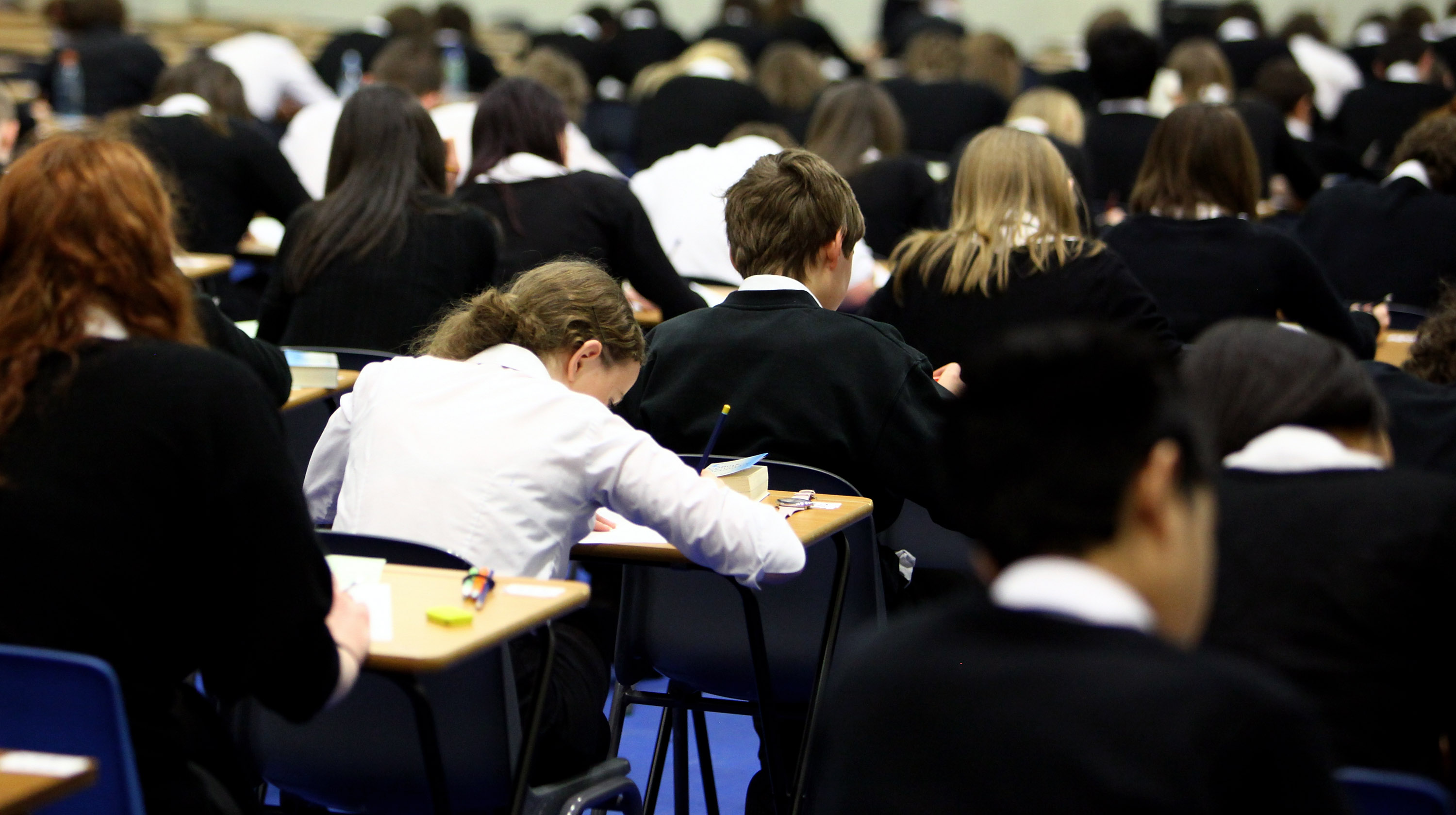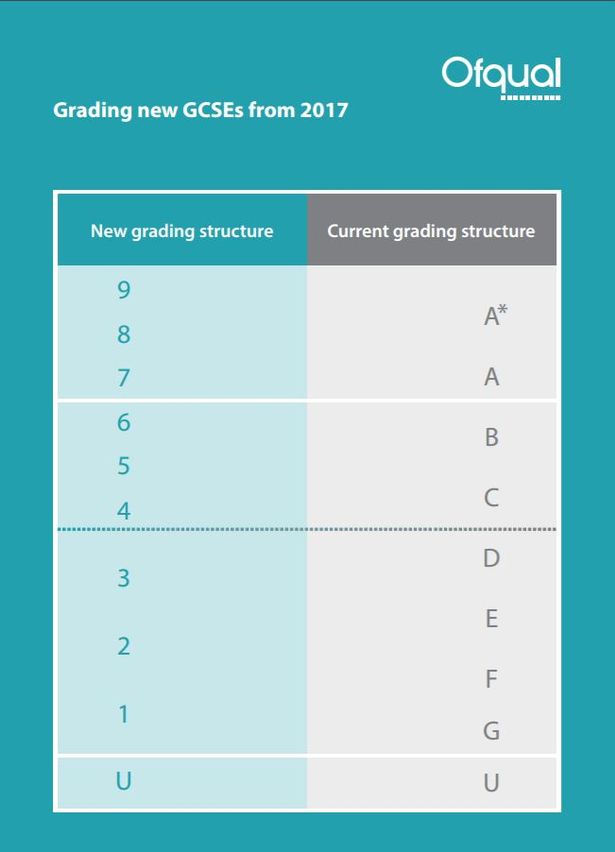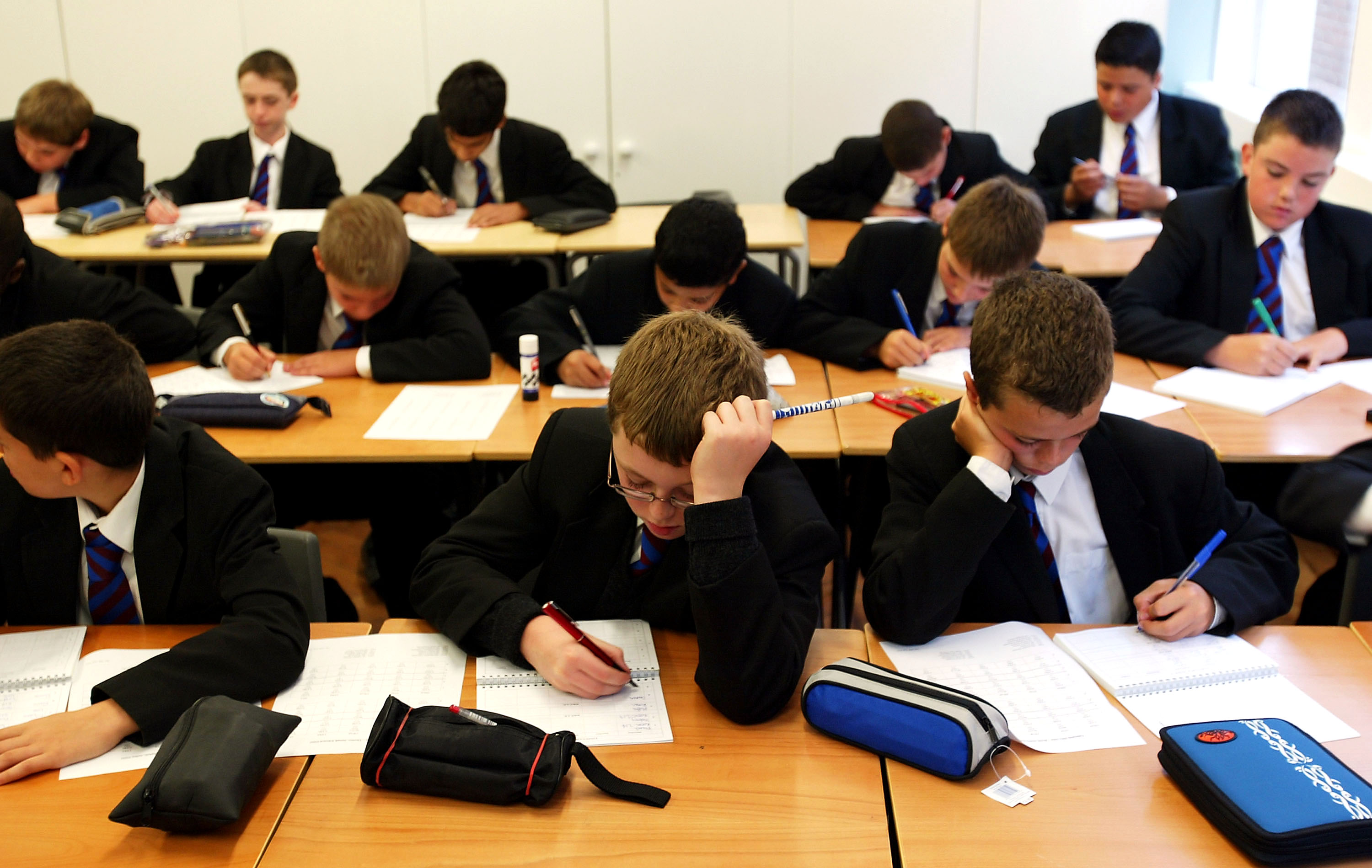GCSE results: Making sense of new grade boundaries
English and Maths papers first to use 1-9 grading system in place of letters

A free daily email with the biggest news stories of the day – and the best features from TheWeek.com
You are now subscribed
Your newsletter sign-up was successful
More than 700,000 students will receive their GCSE results today, which will include the first use of the new numerical grading system set to replace A-G letter grades.
Only English and Maths papers sat by pupils in English schools have been graded by numbers instead of letters this year, but another 20 subjects will adopt the new boundaries in next year's GCSEs.
Wales, Scotland and Northern Ireland will still grade all exam papers under the old system.
The Week
Escape your echo chamber. Get the facts behind the news, plus analysis from multiple perspectives.

Sign up for The Week's Free Newsletters
From our morning news briefing to a weekly Good News Newsletter, get the best of The Week delivered directly to your inbox.
From our morning news briefing to a weekly Good News Newsletter, get the best of The Week delivered directly to your inbox.
So what is the new grading system - and how will it affect results?
In short, A to G grades are being phased out in favour of a numerical hierarchy that runs from 9 - the highest grade - to 1, the lowest.
The first thing to be prepared for as a student or parent is that fewer pupils can expect to achieve the highest grade under the new system - but those who miss out on the top mark should take note that this was the intended consequence of the reforms.
Education chiefs said that the year-on-year increase in the number of pupils achieving the top A* grade meant that finer differentiation was necessary.
A free daily email with the biggest news stories of the day – and the best features from TheWeek.com
The new "9" grade will be awarded to a smaller percentage of students than the A*, and two extra grades - 8 and 7 - will be available to recognise high achievement previously covered by the A and A* grades.
In order to avoid creeping grade inflation, as happened with the A* grade, the number of students awarded a 9 grade will be fixed at around 20 per cent of students who achieve a grade 7 or above.
Similarly, the old B and C grades will now be covered by three numbers - 6, 5 and 4, with 4 replacing C as the "standard pass" grade.
Conversely, towards the bottom of the new grade boundaries, the opposite happens. The area which was previously covered by grades D, E, F and G will be covered by only three numbers.

Advocates of the reforms argue that the 9 to 1 ranking allows for valuable extra nuance compared to the old seven-letter A to G system. However, some education experts have expressed concern that narrower distinctions inevitably mean more room for error.
Robert Coe, a professor in Durham University's School of Education, told the Daily Telegraph, that the increased potential for error was "alarming".
"Part of the reason for the re-grading process was because the top grades had become a bit too common," he said.
"But the trade-off is that it is more likely to be wrong, with people awarded a grade that they shouldn’t have got."
As for how many marks pupils will need to achieve each new grade, trying to tot up their marks and probable grade might be a venerable tradition for anxious students - but this year it will be harder than ever.
Many exam boards are no longer publishing their grade boundaries ahead of results day as a result of "growing fears it was a risk to students' mental health," the Daily Mirror reports.

Advocates of the reforms argue that the 9 to 1 ranking allows for valuable extra nuance compared to the old seven-letter A to G system. However, some education experts have expressed concern that narrower distinctions inevitably mean more room for error.
Robert Coe, a professor in Durham University’s School of Education, told the Daily Telegraph, that the increased potential for error was "alarming".
"Part of the reason for the re-grading process was because the top grades had become a bit too common," he said.
"But the trade-off is that it is more likely to be wrong, with people awarded a grade that they shouldn’t have got."
As for how many marks pupils will need to achieve each new grade, trying to tot up their marks and probable grade might be a venerable tradition for anxious students - but this year it will be harder than ever.
Many exam boards are no longer publishing their grade boundaries ahead of results day as a result of "growing fears it was a risk to students’ mental health," the Daily Mirror reports.
-
 Political cartoons for February 16
Political cartoons for February 16Cartoons Monday’s political cartoons include President's Day, a valentine from the Epstein files, and more
-
 Regent Hong Kong: a tranquil haven with a prime waterfront spot
Regent Hong Kong: a tranquil haven with a prime waterfront spotThe Week Recommends The trendy hotel recently underwent an extensive two-year revamp
-
 The problem with diagnosing profound autism
The problem with diagnosing profound autismThe Explainer Experts are reconsidering the idea of autism as a spectrum, which could impact diagnoses and policy making for the condition
-
 How will new V level qualifications work?
How will new V level qualifications work?The Explainer Government proposals aim to ‘streamline’ post-GCSE education options
-
 Breastfeeding for longer linked to better exam results
Breastfeeding for longer linked to better exam resultsSpeed Read New study suggests breast milk could help secure a child top grades in GCSEs
-
 Pros and cons of GCSEs: is the exam system fit for purpose?
Pros and cons of GCSEs: is the exam system fit for purpose?Pros and Cons Tony Blair has called for ‘radical’ education reform but others want a more cautious approach
-
 How 2020 exam grades will be calculated
How 2020 exam grades will be calculatedSpeed Read Exam cancellations and automated downgrades have led to fears of injustice
-
 Should GCSEs be scrapped?
Should GCSEs be scrapped?In Depth Cancellation of exams as schools shut has fuelled debate about whether testing at 16 should be ditched for good
-
 Is Religious Education on its way out?
Is Religious Education on its way out?In Depth New report suggests replacing RE classes with ‘Religion and Worldviews’
-
 Should GCSE and A-levels be timetabled around Ramadan?
Should GCSE and A-levels be timetabled around Ramadan?In Depth Christian group angered by decision to move exam dates to accommodate fasting Muslims